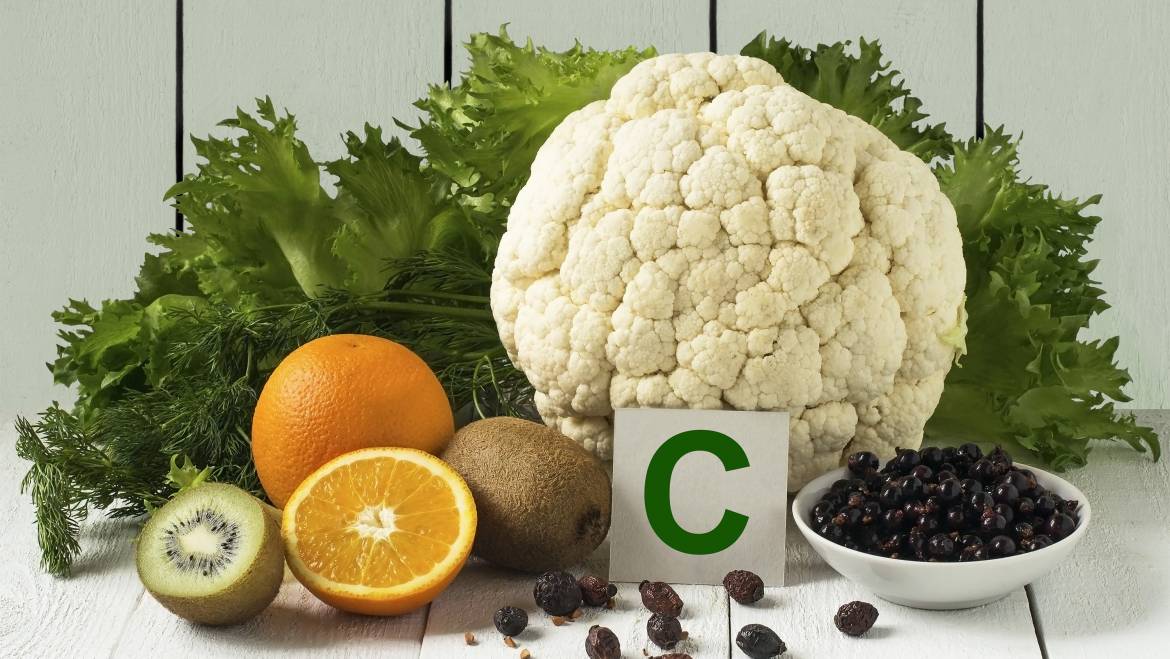Vitamin C which is also known as ascorbic acid, is one of the most important things to be included in your regular diet. Read further to know about vitamin C benefits.
What is Vitamin C?
Vitamin C is necessary for normal growth and development of the body.
Vitamin C is important for making skin, blood vessels, ligaments, and tendons. It is used for curing wounds and forming scar tissue, and for fixing and maintaining bones, cartilage, and teeth. The human body cannot produce vitamin C so it must be obtained from vitamin C rich foods which include fruits and vegetables.
Also Read: Identify and treat the Asthma Attacks
Deficiency of vitamin C mainly causes scurvy, which is characterized by swollen bleeding gums and the opening of formerly cured wounds. It was very common among sailors (until the end of the 18th century) who had limited access to vegetables and fruits.
Being a water-soluble vitamin, residual amounts of the vitamin are eliminated through the urine. Thus, you need a constant supply of vitamin C in your diet.
Normal level of vitamin C required in the human body
The normal level of vitamin C in the human bloodstream lies between 0.4 and 1.7 mg/dL. It’s concentration in tissues is higher than that in the bloodstream but varies from one tissue to another. For example, concentration of vitamin C present in white blood cells can be up to 80 times more than in blood. The body is said to be deficient in vitamin C when blood vitamin C concentration falls below 0.2 mg/dL.
How much vitamin C do you need in your diet?
The amount of vitamin intake depends on your age and gender. Smokers should consume 35 mg/day more dietary vitamin C to compensate for the exhaustion caused by smoking.
For adults, the recommended amount of vitamin C is 65 to 90 milligrams (mg) a day and it should not go beyond 2,000 mg a day. Although too much vitamin C from supplements or medical prescriptions is unlikely to cause any harm for most individuals, some people do have undesirable reactions.
Benefits of Vitamin C
Vitamin C is necessary for the development and repair of tissues in all parts of your body. Vitamin C benefits include healing of wounds and formation of scar tissue, remodelling and maintenance of teeth, bones, cartilage, and absorption of iron.
The requirement of vitamin C for the synthesis of collagen, an important structural component of bones, tendons, ligaments, and blood vessels shows the importance of vitamin C.
Vitamin C is vital in the synthesis of neurotransmitters, mainly norepinephrine, which is important for the functioning of your brain and controls mood and behaviour.
Vitamin C also plays an important role in the synthesis of a small molecule called carnitine, which is necessary for the transport of fat to cellular mitochondria for the production of energy.
Vitamin C benefits include its antioxidant effect on your body. Being a highly effective antioxidant, even a small amount of vitamin C provides protection to essential molecules (such as DNA, RNA, proteins, carbohydrates and, lipids) against free radicals (reactive oxygen species).
Free radicals are generated during normal metabolism of food inside your body or through exposure to tobacco smoke or radiation. The accumulation of free radicals is mainly responsible for the aging process and in the development of heart diseases, cancer and conditions like arthritis.
Sources of vitamin C
The best way to get adequate amount of vitamin C is to include enough vitamin C fruits and vegetables in your diet. Fresh vegetable juices and salads are also tremendous sources of vitamin C.
Fruits with the highest sources of vitamin C include muskmelon, citrus fruits and juices (such as orange and grapefruit), kiwi fruit, mango, papaya, pineapple, cranberries, raspberries, strawberries, blueberries and watermelon.
Vegetables with the highest sources of vitamin C include broccoli, green and red peppers, Brussels sprouts, cauliflower, cabbage, spinach, turnip greens, and other leafy greens, white and sweet potatoes, winter squash, tomatoes and tomato juice.
Some foods including cereals and beverages are fortified with vitamin C. Fortified means a vitamin or mineral has been added to the food during processing it. Check the product labels to see how much vitamin C is in the product.
The best food sources of vitamin C are uncooked or raw fruits and vegetables. Cooking vitamin C-rich foods or storing them for long hours can cut down the vitamin C content. Loss through cooking can be reduced by microwaving or steaming vitamin C rich foods.
Also Read: Beneficial tips to get healthy hair
Exposure to light can also reduce vitamin C content. Choose fruit juices that are sold in cartons instead of clear bottles.
Conclusion: Vitamin C is also known as ascorbic acid. Synthesis of collagen, neurotransmitters, carnitine and, eradication of free radicals are some of the vitamin C benefits. It is required for normal growth and development of the body and can be obtained from vitamin C rich foods, mainly fruits and vegetables.




